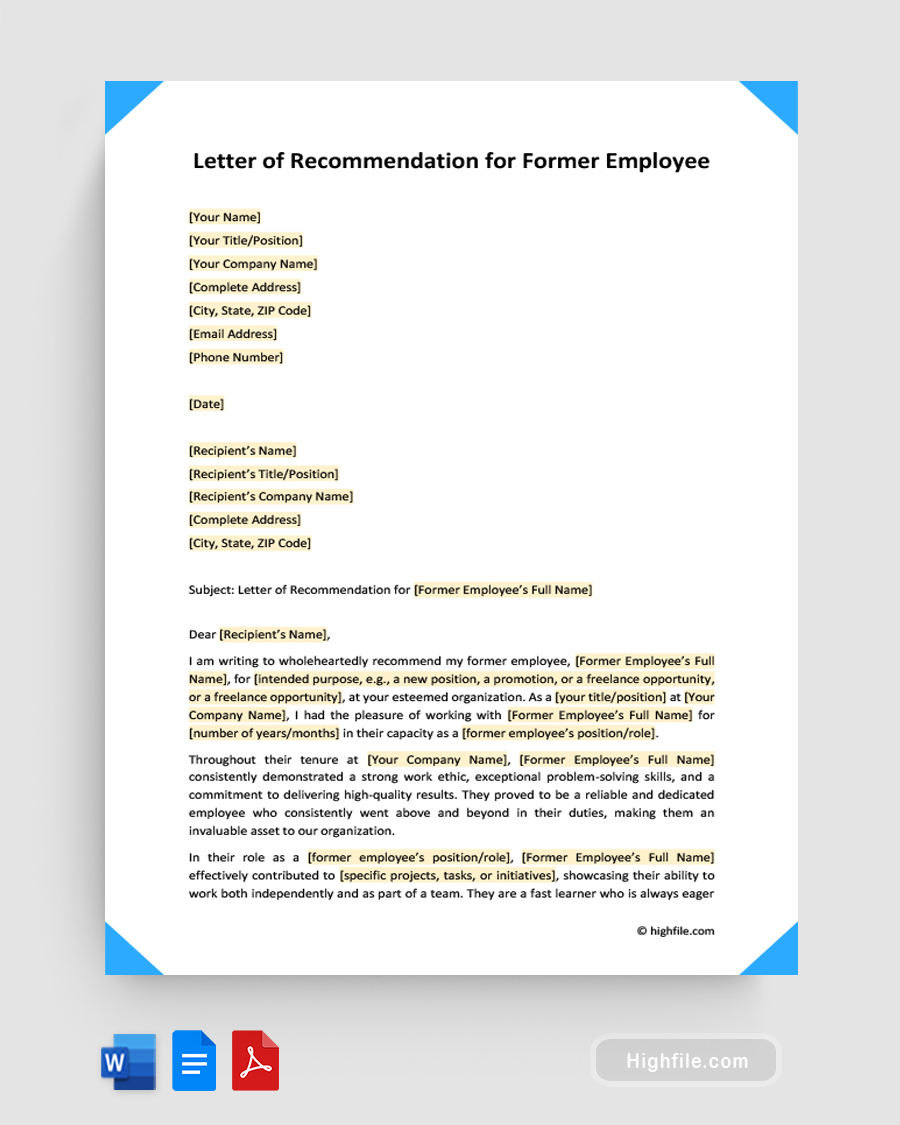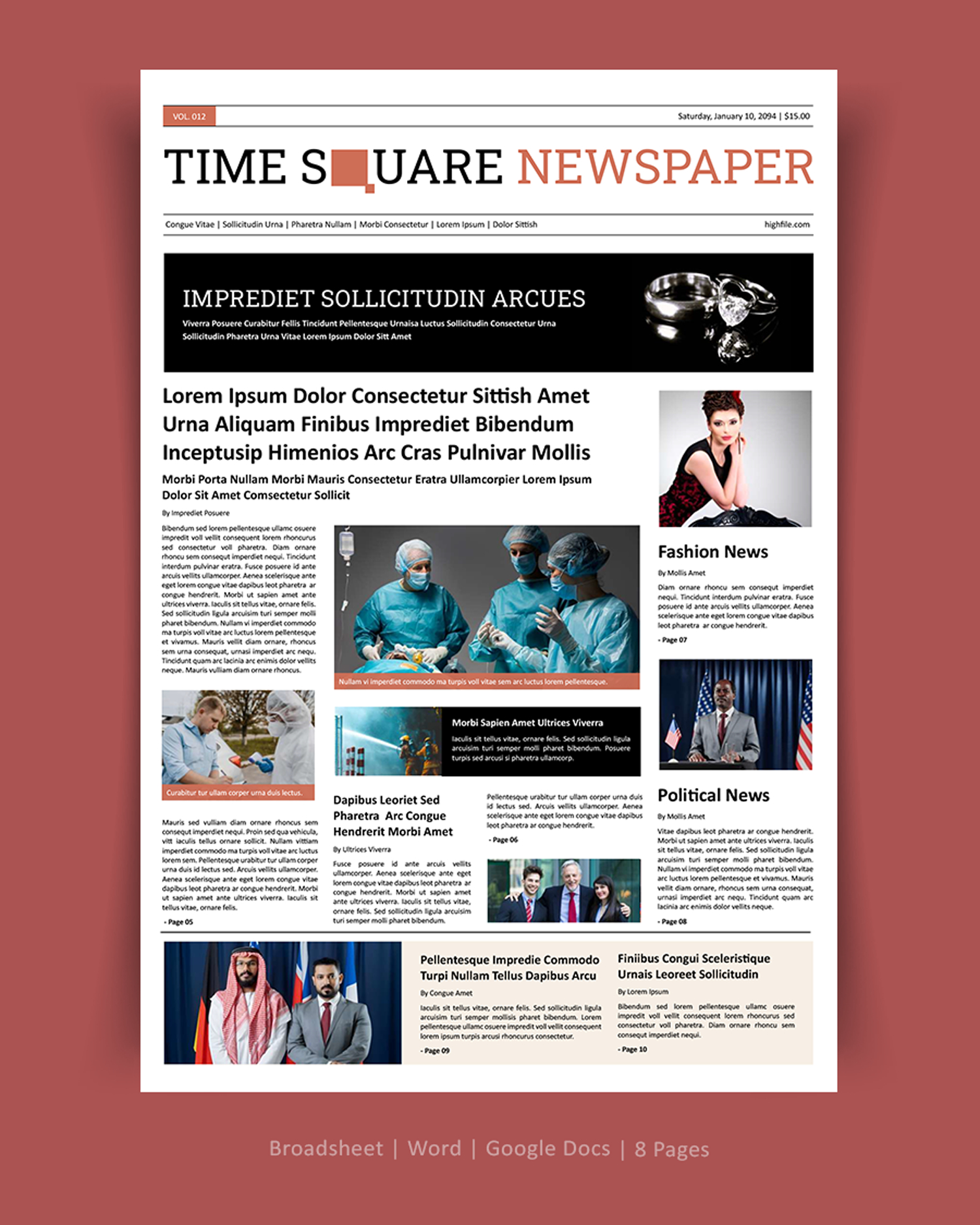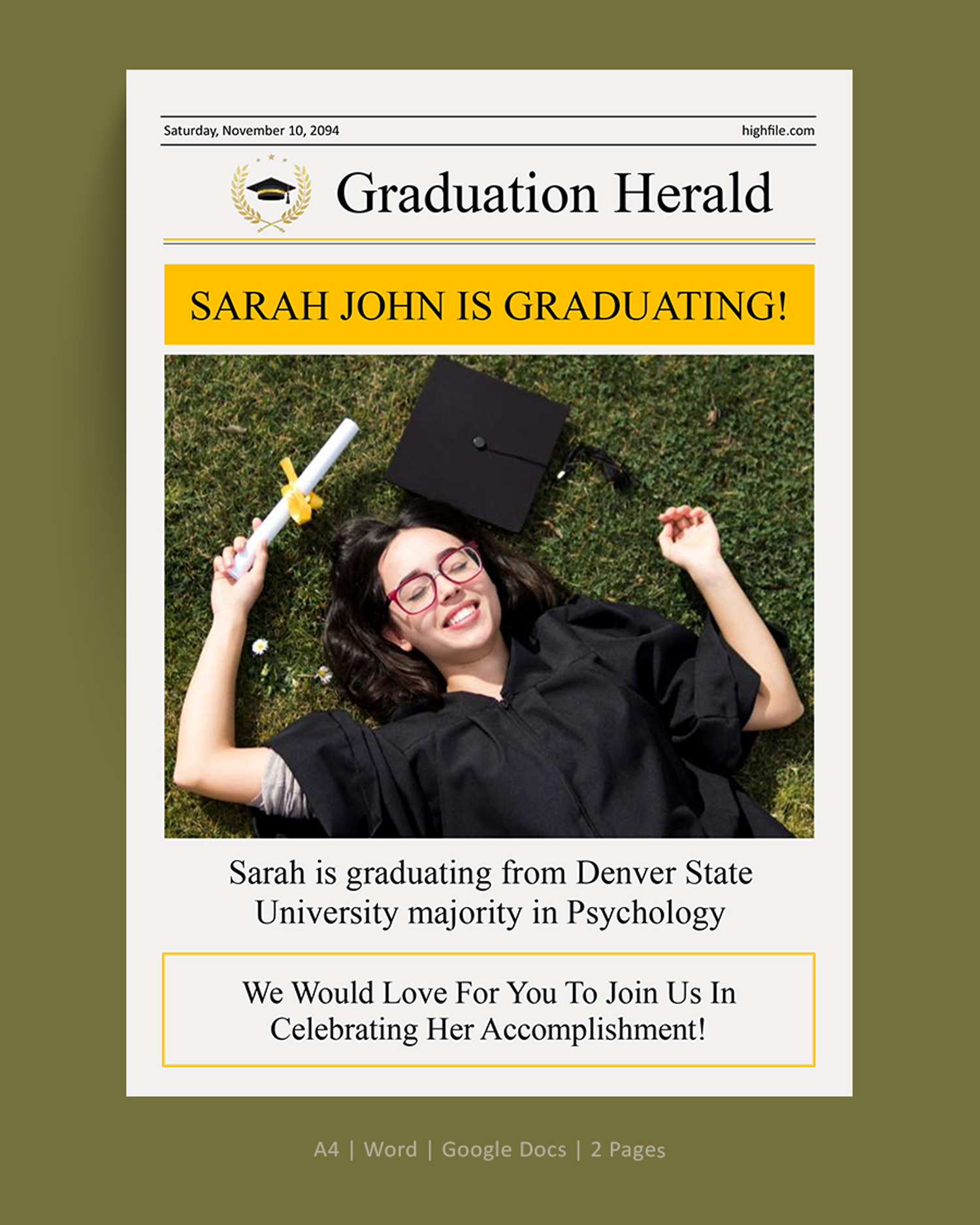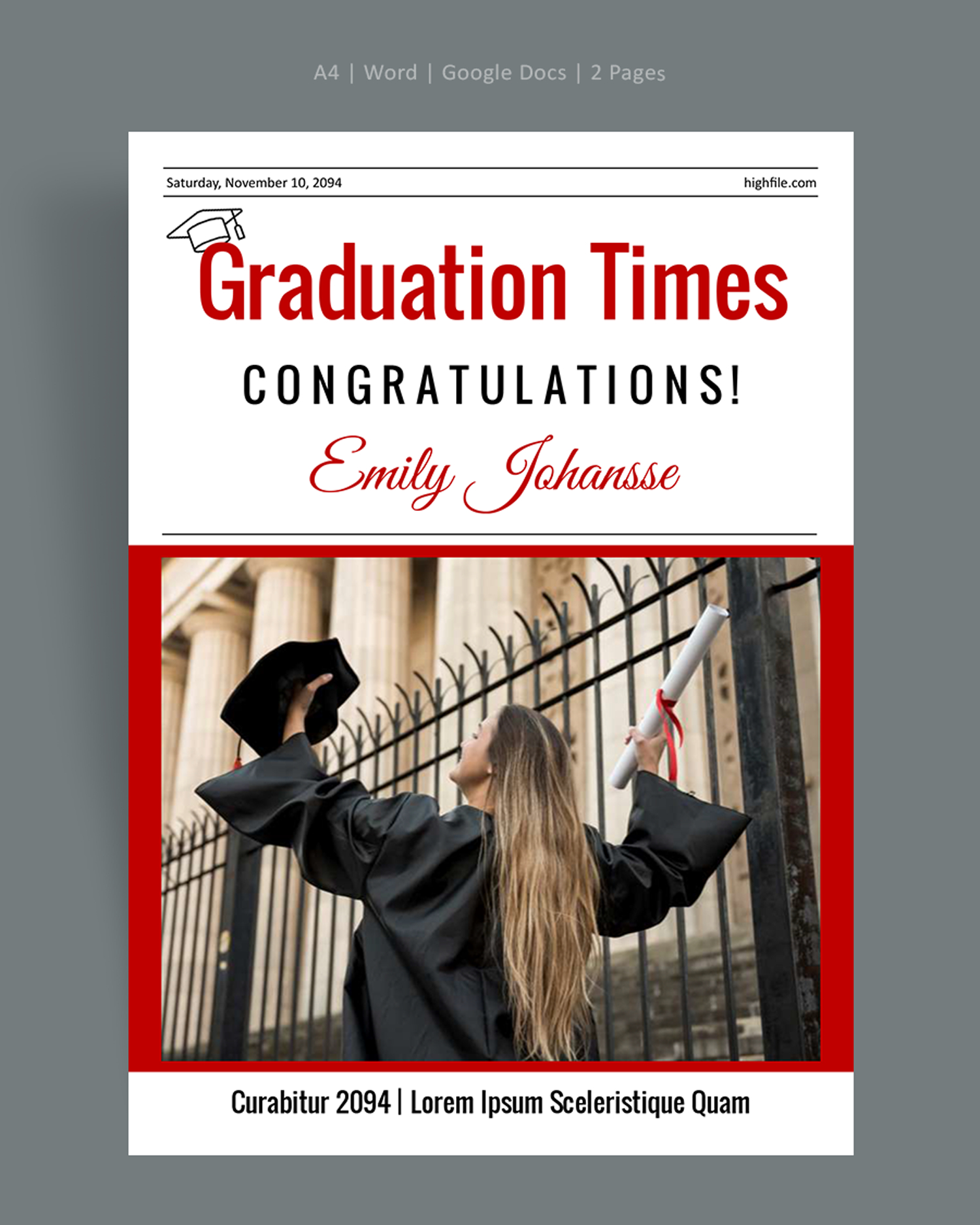A Letter of Recommendation endorses a former employee’s qualifications and character for potential employers or academic institutions, providing insight into their work ethic, abilities, achievements, and personal qualities such as integrity, teamwork, and leadership skills. Using a template can save time and effort while ensuring a clear structure and inclusion of important information. Using a template can be beneficial because it provides a clear structure for the letter and ensures that important information is included. It can also save time and effort, as the writer can focus on tailoring the content to the specific employee and role rather than worrying about formatting and organization.
What Is a Letter of Recommendation for a Former Employee?
A letter of recommendation for a former employee is a written document that provides an evaluation of the employee’s skills, work ethic, and accomplishments during their tenure at a previous job. The letter is typically requested by the employee as part of an application for a new job or educational program. It is intended to provide an independent evaluation of their qualifications and potential for success. The endorsement should address any relevant professional qualifications, educational background, and work experience. In addition, the letter provides insights into the employee’s character, work ethic, and other personal qualities that may be important for success in the new position or program.
Why Is a Letter of Recommendation for a Former Employee Important?
A letter of recommendation for a former employee is vital as it provides an endorsement of their skills, abilities, and character, adds credibility to their application, highlights their achievements, and assists in building their professional network and reputation. Here are the benefits of a letter of recommendation for a former employee:
- Provides an endorsement of the employee’s skills, abilities, and character.
- Demonstrates the employee’s qualifications to potential employers or academic institutions.
- Adds credibility to the employee’s application by providing an objective evaluation from a former employer or supervisor.
- Highlights the employee’s accomplishments, achievements, and work ethics to stand out from other applicants.
- Helps bridge the gap in the employee’s job history, especially for those with gaps or career changes.
- Provides potential employers or academic institutions with a better understanding of the employee’s potential contributions.
- Assists in building the employee’s professional network and reputation.
- Helps to boost the employee’s self-confidence and morale by receiving a positive recommendation from a former employer or supervisor.
Fun Fact: In ancient China, letters of recommendation were known as “tiao” documents, which were typically written by high-ranking officials to recommend individuals for government positions. These documents served as a way to promote talent and prevent corruption in the selection process. Later, during the Han dynasty, “qi” documents were introduced, which were similar to tiao documents but included more detailed information about the recommended individual’s personal qualities and achievements.
How to Write a Letter of Recommendation for a Former Employee
Here are the steps to write a letter of recommendation for a former employee:
- Request Information: Request necessary information from the employee, such as their resume, job description, accomplishments, and goals.
- Introduction: Begin the letter with a formal introduction that includes the employee’s name, your name, and your professional relationship with the employee.
- Explain the Purpose: Explain the purpose of the letter and how you know the employee, including the period of employment and the role they played in the organization.
- Highlight Strengths: Highlight the employee’s strengths, including their work ethics, achievements, and relevant skills.
- Provide Examples: Provide specific examples and evidence that support your statements and demonstrate the employee’s abilities.
- Personal Qualities: Discuss the employee’s personal qualities, such as integrity, leadership, teamwork, and communication skills.
- Conclusion: Summarize the employee’s qualifications and achievements and express your enthusiasm in supporting their application.
- Offer Contact: Offer to be contacted for further information or clarification and provide your contact information.
- Proofread: Proofread the letter for any spelling or grammatical errors and ensure it is formatted correctly.
- Submit: Send the letter to the appropriate person or institution by the deadline.
Pro Tip: Including verifiable metrics in a letter of recommendation for a former employee can make a significant impact by providing concrete evidence of the employee’s achievements and skills. Incorporating quantifiable data such as sales figures, project completion rates, or customer satisfaction ratings can strengthen the recommendation and make it more persuasive to potential employers or academic institutions. Therefore, it is recommended to request and include verifiable metrics in the letter of recommendation whenever possible.
Sample Letter of Recommendation for Former Employee
[Your Name]
[Your Title/Position]
[Your Company Name]
[Address]
[City, State, Zip]
[Email Address]
[Phone Number]
[Today’s Date]
[Recipient’s Name]
[Recipient’s Title/Position]
[Recipient’s Company Name]
[Address]
[City, State, Zip]
Subject: Letter of Recommendation for [Former Employee’s Name]
Dear [Recipient’s Name],
I am writing to wholeheartedly recommend my former employee, [Former Employee’s Name], for [intended purpose, e.g., a new position, a promotion, or a freelance opportunity] at your esteemed organization. As a [Your Title/Position] at [Your Company Name], I had the pleasure of working with [Former Employee’s Name] for [number of years/months] in their capacity as a [Former Employee’s Position/Role].
Throughout their tenure at [Your Company Name], [Former Employee’s Name] consistently demonstrated a strong work ethic, exceptional problem-solving skills, and a commitment to delivering high-quality results. They proved to be a reliable and dedicated employee who consistently went above and beyond in their duties, making them an invaluable asset to our organization.
In their role as a [Former Employee’s Position/Role], [Former Employee’s Name] effectively contributed to [specific projects, tasks, or initiatives], showcasing their ability to work both independently and as part of a team. They are a fast learner who is always eager to take on new challenges and responsibilities, making them well-suited for a wide range of professional opportunities.
[Former Employee’s Name] possesses strong communication and interpersonal skills, which enabled them to build productive relationships with colleagues, clients, and other stakeholders. Their ability to effectively collaborate and adapt to different working styles made them a pleasure to work with and an integral member of our team.
In addition to their professional accomplishments, [Former Employee’s Name] has demonstrated a commitment to personal growth and development. They have actively sought out opportunities for learning and self-improvement, including [list relevant training, workshops, or certifications]. These experiences have further honed their skills and prepared them for the challenges and opportunities presented by [intended purpose].
In summary, I am confident that [Former Employee’s Name] possesses the skills, experience, and drive necessary to excel in [intended purpose] and to make a meaningful impact on your organization. I wholeheartedly endorse their candidacy and believe that they would be an invaluable addition to your team. Should you require any additional information or have any questions, please do not hesitate to contact me.
Sincerely,
[Your Name]
[Your Title/Position]
[Your Company Name]
Common Mistakes to Avoid in Letter of Recommendation for Former Employee
To write an effective letter of recommendation for a former employee, it is essential to avoid making common mistakes. Doing so may undermine the letter’s credibility, misrepresent the employee’s qualifications, and harm their chances of securing the job or admission. Here are some things to keep in mind while writing:
- Avoid making general statements without providing specific examples or evidence.
- Avoid including irrelevant or unrelated information to the job or program the employee is applying for.
- Avoid exaggerating or misrepresenting the employee’s qualifications or achievements.
- Avoid using inappropriate language or humor that could be misinterpreted or offend the reader.
- Avoid providing a letter that is too short or too long. Ideally, aim for one to two pages in length.
- Avoid not proofreading the letter for spelling or grammatical errors.
- Avoid providing a letter that lacks enthusiasm or appears to be written without sincere interest in supporting the employee’s application.
Important Note: It is essential to be transparent and honest when writing a letter of recommendation for a former employee to maintain the integrity of the process and provide an accurate representation of the employee’s qualifications and character. If you cannot provide a positive or objective recommendation, it is best to decline the request politely and inform the employee promptly. Declining a request may be necessary if you lack sufficient knowledge of the employee’s qualifications, have a conflict of interest, or have had a negative experience working with the employee. It is important to provide a clear explanation for your decision and offer alternative recommendations if possible.
FAQs
Typically, a letter of recommendation for a former employee should be around one to two pages in length, with standard font size and formatting. The length of a letter of recommendation for a former employee can vary depending on the requirements of the application or program. It should be long enough to provide a comprehensive and detailed evaluation of the employee but not so long that it becomes cumbersome or tedious to read.
While it is important to provide a strong recommendation for a former employee, it is also important to avoid being too effusive or overly complimentary in your letter of recommendation. Here are some tips to help strike the right balance:
ᐅ Be specific: Rather than making broad statements about the employee’s skills or character, provide specific examples that demonstrate those qualities. For example, instead of saying, “John is a great team player,” you could say, “John consistently went above and beyond to support his colleagues, volunteering to take on extra tasks and always willing to lend a hand when needed.”
ᐅ Use balanced language: Try to use language that is both positive and balanced rather than overly effusive. Instead of saying, “Jane is the best employee I’ve ever worked with,” you could say, “Jane is an exceptional employee with strong skills in X, Y, and Z.”
ᐅ Avoid hyperbole: While it can be tempting to use hyperbolic language to make your recommendation stand out, it is important to avoid exaggeration or overstatement. Stick to the facts and provide specific examples to support your claims.
ᐅ Be honest: While it is essential to highlight the employee’s strengths honestly. If you have concerns about the employee’s work or character, it is better to refuse and recommend they choose another writer.
ᐅ Keep the focus on the employee: While it can be tempting to talk about your own experiences or accomplishments, it is important to keep the focus of the letter on the employee and their qualifications. Avoid making the letter about yourself, and instead, focus on providing a strong and balanced evaluation of the employee’s skills and character.
Including a former employee’s job title and specific responsibilities in a letter of recommendation can provide valuable context and strengthen the letter. Job title establishes experience and expertise, while responsibilities provide more detail about the employee’s skills and accomplishments.
Key Points
The purpose of a letter of recommendation for a former employee is to endorse and support the employee’s qualifications, skills, and character to potential employers or academic institutions. The letter provides an objective evaluation of the employee’s abilities and achievements and highlights their personal qualities such as integrity, teamwork, and leadership skills. Ultimately, the purpose of the letter is to assist the employee in securing a job or admission to a program or institution.







